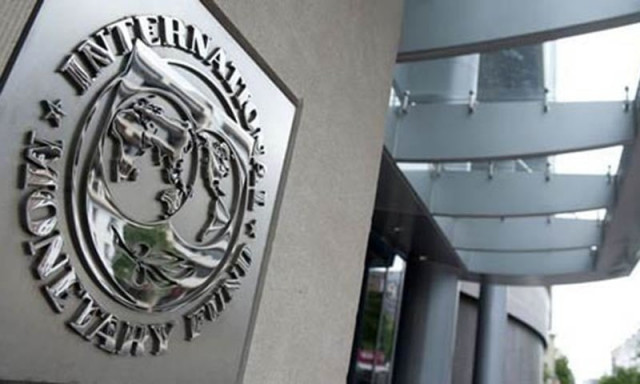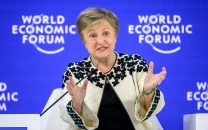IMF programme back on track
Creditor’s board okays four pending reviews of Pakistan’s economy and release of next loan tranche of around $500m

The International Monetary Fund (IMF) on Wednesday approved four pending reviews of Pakistan’s economy and the release of the next loan tranche of around $500 million, reviving the $6 billion programme after it remained derailed for over a year.
In order to put the programme back on track, Prime Minister Imran Khan took some tough political decisions despite prevailing political uncertainty. These measures, which were also the prior conditions, included significantly increasing electricity prices, imposition of Rs140 billion taxes and agreeing to an unparalleled autonomy for the central bank.
The Executive Board of the IMF endorsed the staff-level agreement, reached between the government of Pakistan and the IMF team last month, a top government functionary told The Express Tribune after the board approval.
The board’s approval has paved the way for the release of $500 million third loan tranche. Out of the $6 billion, the IMF has already disbursed $1.45 billion in two tranches, bringing the total disbursements to $2 billion.
Read more: IMF agrees to revive Pakistan’s stalled $6 billion bailout programme
Sources said that it will be very challenging to keep the reinstated programme on track, particularly due to heavy taxation of over Rs700 billion and cut in expenditures in the next budget.
Pakistan’s economy has started gradually recovering from the aftermaths of the Covid-19 but it is again struck by the third wave of the deadly pandemic. The central bank last week upward revised the growth forecast to 3% for this fiscal year.
The revival of the programme would keep external loans pipelines opened for Pakistan, as the government remained heavily dependent on the external borrowings to remain afloat.
In April last year, the IMF had postponed a board meeting for the approval of the second review after Islamabad did not honour its commitment to announce a mini-budget and increase electricity prices, resulting in the derailment of the programme.
In February, both sides agreed to club the pending second, third, fourth and fifth reviews of the programme. The separate completion of these reviews would have led to disbursements of $2.2 billion, which the IMF has now reduced to just $500 million.
Also read: Cabinet approves end to tax breaks
In order to get the programme restored, the PTI government finally conceded to slap Rs140 billion in taxes. The withdrawal of Rs140 billion worth of income tax exemptions was a prior condition by the IMF to take Pakistan’s request to the Executive Board for approval of the next loan tranche
The government also increased electricity prices by 16% in February and a commitment to further increase tariffs by 36% in six months (April-October 2021).
The federal cabinet on Friday approved the promulgation of an ordinance aimed at preparing a legal path to increase power tariff by a minimum of Rs5.65 per unit from now till October to collect a whopping Rs884 billion from consumers. The cabinet allowed further amending the Regulation of Generation, Transmission and Distribution of Electric Power Act, commonly known as NEPRA Act, through an ordinance.
The ordinance will give powers to the government to impose a new surcharge equal to 10% of the electricity revenue requirements or Rs1.40 per unit. In addition, the ordinance will give effect to implementing the Circular Debt Management Plan, approved by the cabinet.
The legal amendments have curtailed the federal government’s powers to notify an increase in power tariffs. The law has given the right to Nepra if the government does not increase tariff from 15 days in case of quarterly adjustments and one month in case of the annual-base tariff increase.
The circular debt management plan reveals that from now till October this year, the power tariff will go up by Rs5.65 per unit in six phases to recover an additional Rs884 billion from consumers from April 2021 through June 2023.
The Rs5.65 per unit increase would push the electricity bill up by 36%, excluding the impact of taxes.
The six-phase increase includes two annual tariff adjustments and four quarterly tariff adjustments. After including a special surcharge of 10%, the price will go up by Rs7 per unit and the additional burden would surge to Rs934 billion.
The PTI government has already increased the annual-base tariff by Rs1.95 per unit last month. After including this increase, the total tariff increase will be Rs8.95 per unit and the additional impact on the consumers is a whopping Rs1.134 trillion.



















COMMENTS
Comments are moderated and generally will be posted if they are on-topic and not abusive.
For more information, please see our Comments FAQ